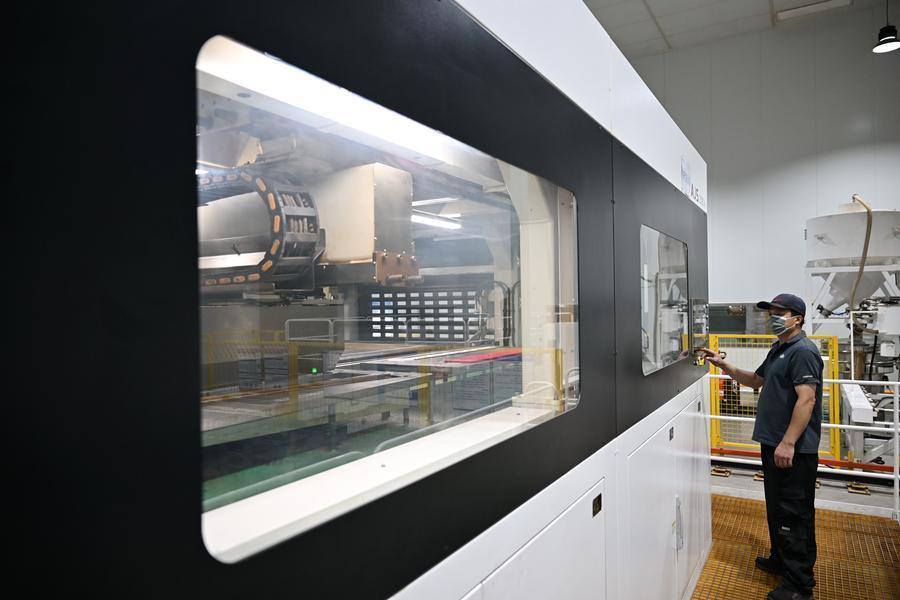
They shuttle through the streets and lanes in the city, know the blocks, units, house numbers better than anyone, but feel that they are a guest who will eventually leave; you meet them almost every day, familiar with their uniforms but not familiar with their names; they are used to getting up early in the dark, exposing to the wind and sun so that most of them seem to look older than their actual age ... They are professional couriers.
A few days ago, the Ministry of Social Affairs released the country's 100 jobs in recruitment shortages of the third quarter of this year, couriers again is in the top 10.
How many couriers are there in Zhejiang? What kind of people are they? What career ideals and life aspirations do they have? Qianjiang Evening News, in cooperation with the Zhejiang Post Administration, issued the Zhejiang Courier Development Report (hereinafter referred to as the Report), which may be able to answer these questions initially.
This emerging group of these young professionals has a similar background: mostly post-80s, post-90s, mainly men, the majority of them from rural areas outside the province, including Anhui, Guangxi, Jiangxi, Heilongjiang, Fujian, and other provinces and cities. Most couriers complete junior or senior school education, and there are also a few practitioners with a community college or higher education, but the percentage of people with such education background has been growing steadily in recent years. The wage of couriers is usually more than 4000 Yuan per month.
In 2019, Zhejiang Province's express delivery business volume reached 13.26 billion pieces, ranking second in the country, accounting for one-fifth of the national market share. The province's express delivery industry serves more than 60 million people on a daily average, supporting the province's physical goods network retail transactions of nearly 1.6 trillion Yuan.
According to real-time monitoring data from the postal industry's security regulatory information system, until October 25, Zhejiang Province had more than 13.2 billion express delivery operations, renewed the record of 2019 two months before the year-end. The average monthly business volume exceeds 1.32 billion units.
According to the report, the volume of express delivery business in Zhejiang Province is expected to exceed 16 billion units in 2020 with a year-on-year growth rate up 31.7%, reducing logistics costs for industrial manufacturing enterprises in the province by more than 80 billion Yuan.
Born in the 90s, a young man named Li Qingheng, became a courier sorter in Hangzhou, after graduating from high school from his hometown in Anhui. With his professional skill of rapid package sorting, he was evaluated as one of Class D high-level talents of Hangzhou, enjoying preferential policies in the purchase of housing, children’s education, medical security, and so on. Express sorters being admitted into the high-level talent assessment has become an important milestone in the delivery industry talent protection.
Zhejiang Provincial Human and Social Security Department are also studying the implementation of a new employment form, which includes more diversified forms of employment and more flexible pay distribution, social insurance working hours, and leave policies, so as to safeguard the legitimate rights and interests of new industrial workers.
What real-life couriers hope more is not only to have sound protection of rights and interests but also with labor-matching income and welfare benefits. Of course, they also hope to get more understanding and recognition.
"When customers give us a smile and say thank you when they receive a courier, it seems to be worth it for us to be a little tired." A courier said, "We really need more recognition and respect from the community."
Courier Chen Haiqing's life is very regular: get up at 6 a.m., arrive at the company at 7 a.m. and begin to stock up, before 9 o'clock reach the delivery area right on time, and the leaving hour will be seven or eight o'clock in the evening. However, there is always a harvest. Chen Haiqing got the middle title last year, and he also loaned to buy a house, ending years of wandering rental life. Hangzhou became his second hometown.
Since 2011, Zhejiang province began to carry out courier professional skills identification. Up to now, 50,851 of Zhejiang province's couriers have the junior qualification, 4329 with intermediate qualification, 1113 with senior qualification, and 18 as business operators, sum up to a total of 56,311 people.
Express industry sets labor-intensive and technology-intensive in one, the recognition of professional qualification not only reflects the labor value of practitioners but also greatly enhances the social status of the industry.
(Edited by Wu Hongjie)




